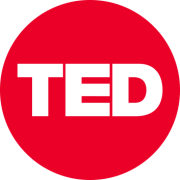https://blog.ted.com/big-bets-ted-talks-on-transformation-supported-by-the-rockefeller-foundation/
- |
The world needs novel solutions and partnerships to address our most staggering challenges and to transform the systems like food, healthcare, energy and financial services that are essential to making opportunity universal and sustainable. In that spirit, TED and The Rockefeller Foundation joined forces for a special event focused on “Big Bets” — new ideas and innovations, often from unlikely partnerships, that show the grit needed to learn and persist — and invited us to reimagine what’s possible.
The event: TED Salon: Big Bets, supported by The Rockefeller Foundation, hosted by TED’s Whitney Pennington Rodgers; with opening remarks from Natalye Paquin, Chief Operating Officer of The Rockefeller Foundation, and Dr. Raj Shah, President of The Rockefeller Foundation; and closing remarks from Sarah Geisenheimer, Vice President of Convenings & Networks for The Rockefeller Foundation, and Marlee Margolin, Director of Convenings and Networks for The Rockefeller Foundation
When and where: May 23, 2024 at the TED World Theater in New York City
Speakers: Rosanne Haggerty, Kasia Chmielinski, Victor Ochen, Doris Sung, Yvette Cabrera, Sam Wang, Paul Rucker, Saleem Ali and Fatmata Binta — all members of The Rockefeller Foundation Bellagio Center Residency Program
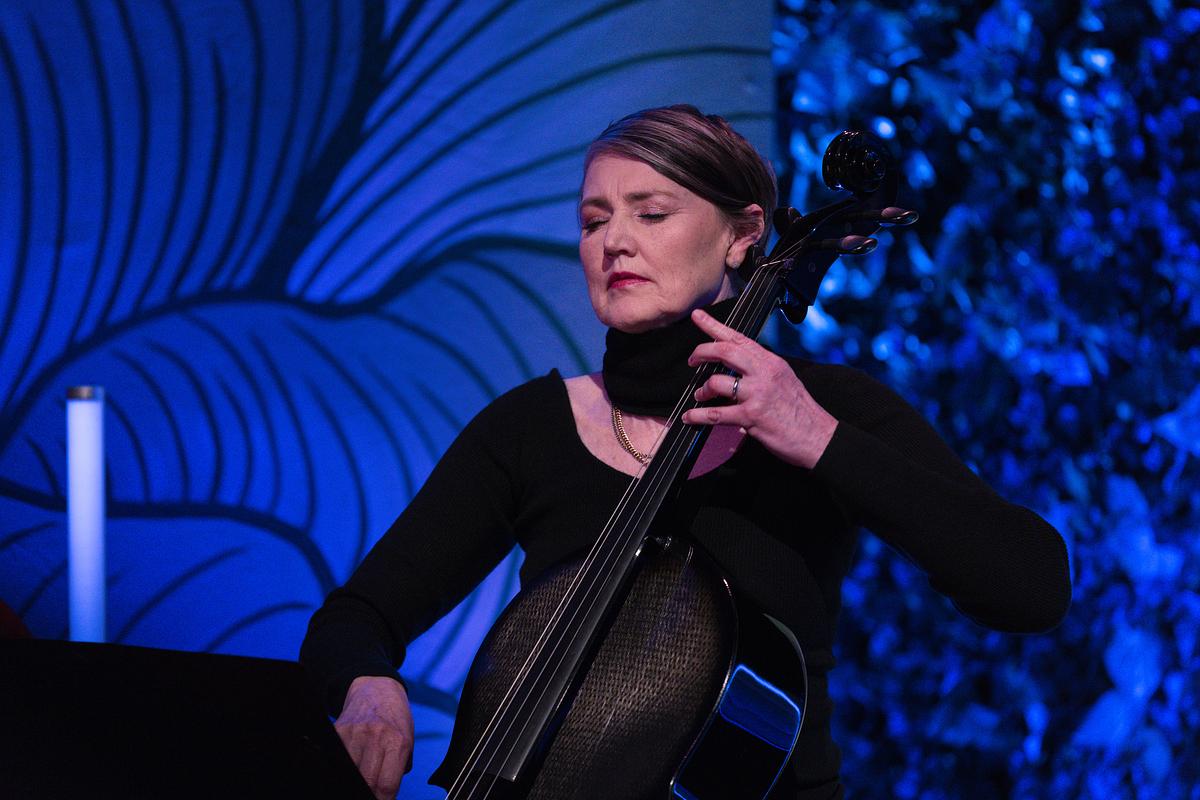
Stephanie Winters performs at TED Salon: Big Bets at the TED World Theater in New York City on May 23, 2024. (Photo: Gilberto Tadday / TED)
Music: Cellist Stephanie Winters performs a moving, mind-wandering suite titled “Reflections,” which excerpts the Sarabande dance movement from J.S. Bach’s cello suites.
The talks in brief:
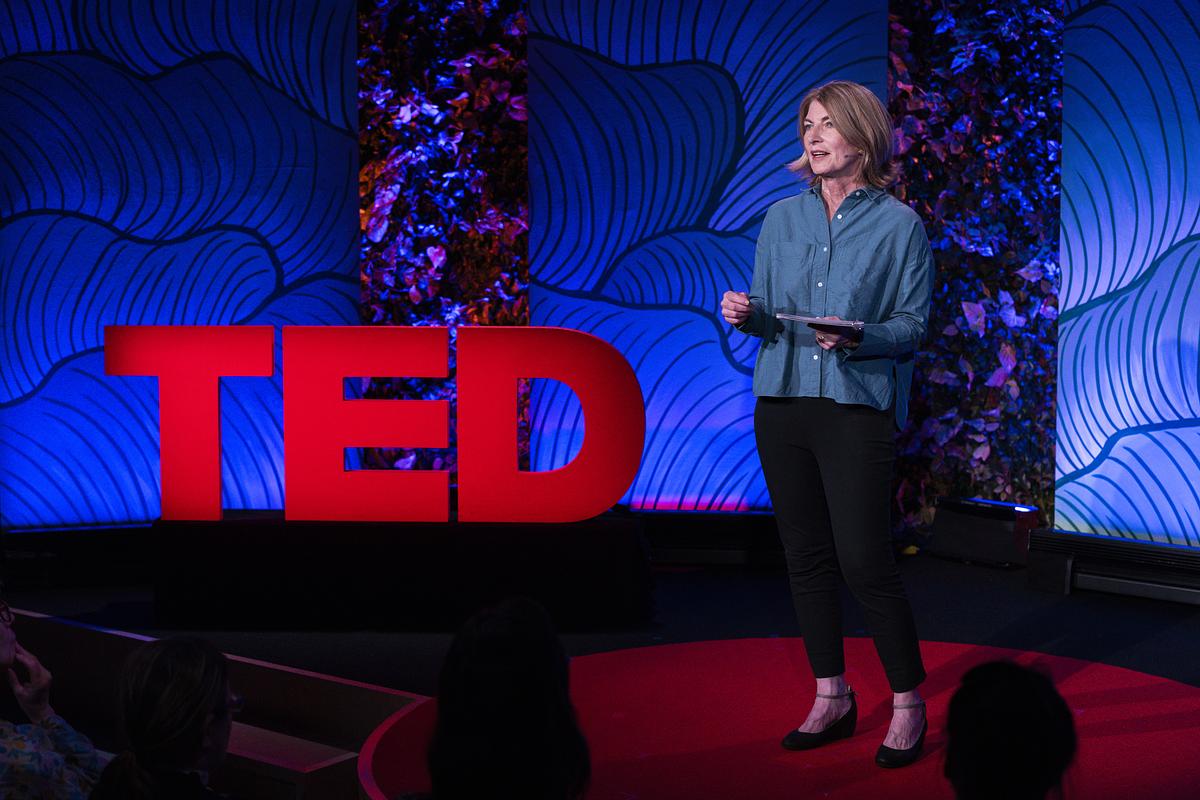
Rosanne Haggerty speaks at TED Salon: Big Bets at the TED World Theater in New York City on May 23, 2024. (Photo: Gilberto Tadday / TED)
“We’ve been flying blind when it comes to housing and homelessness,” says anti-homelessness champion Rosanne Haggerty. Highlighting success stories in Houston, Texas, and Rockford, Illinois, she advocates for a unified and data-driven approach to make homelessness rare and brief — because having a safe place to live is a human right.
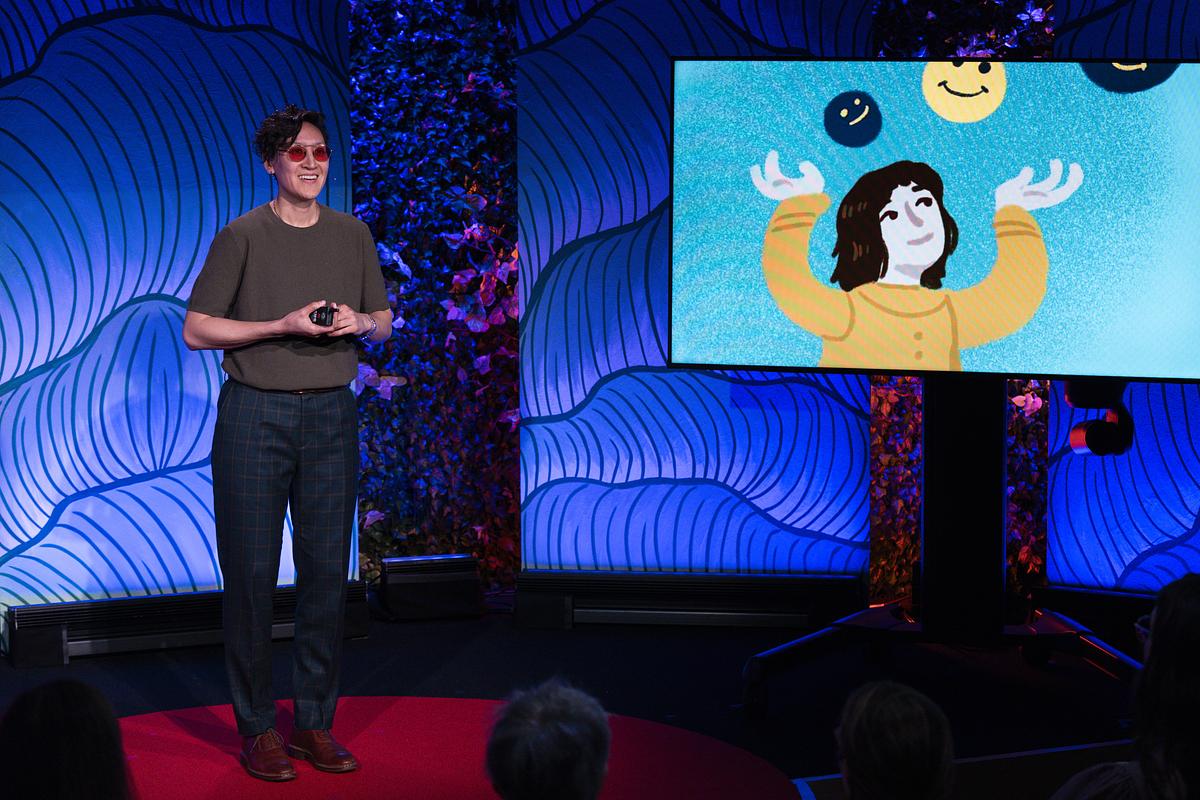
Kasia Chmielinski speaks at TED Salon: Big Bets at the TED World Theater in New York City on May 23, 2024. (Photo: Gilberto Tadday / TED)
AI systems are increasingly pervasive and broad in reach, yet most countries lack any sort of safety requirements around their usage. Data reformist Kasia Chmielinski describes their work on the Data Nutrition Project: a nonprofit aimed at disclosing the “ingredients” of AI training datasets in order to ensure the development of fairer, more transparent algorithms.
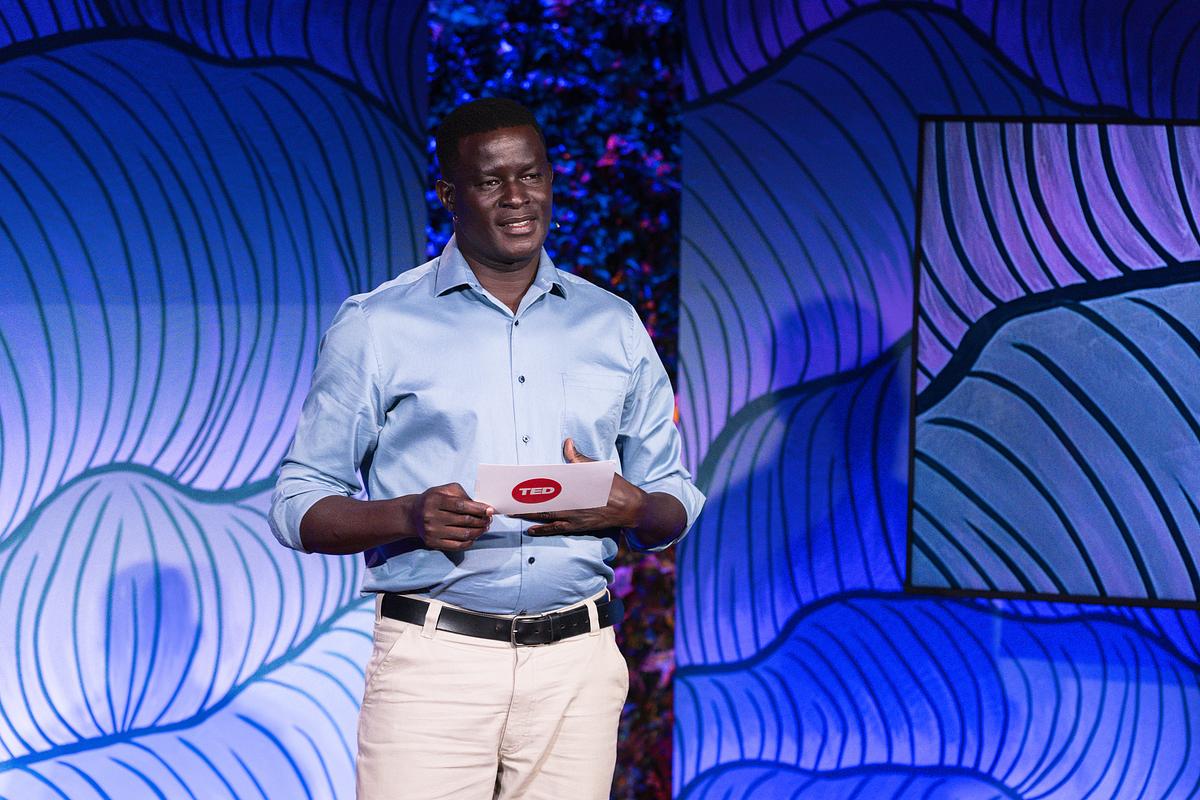
Victor Ochen speaks at TED Salon: Big Bets at the TED World Theater in New York City on May 23, 2024. (Photo: Gilberto Tadday / TED)
Conflict is the biggest barrier to climate progress, explains peace, reconciliation and youth advocate Victor Ochen. Drawing from his experience with war-torn and poverty-ridden communities in Uganda, he emphasizes the need for coordinated, youth-led initiatives that fight climate change and inequality — and highlights how interconnected war and climate issues really are.
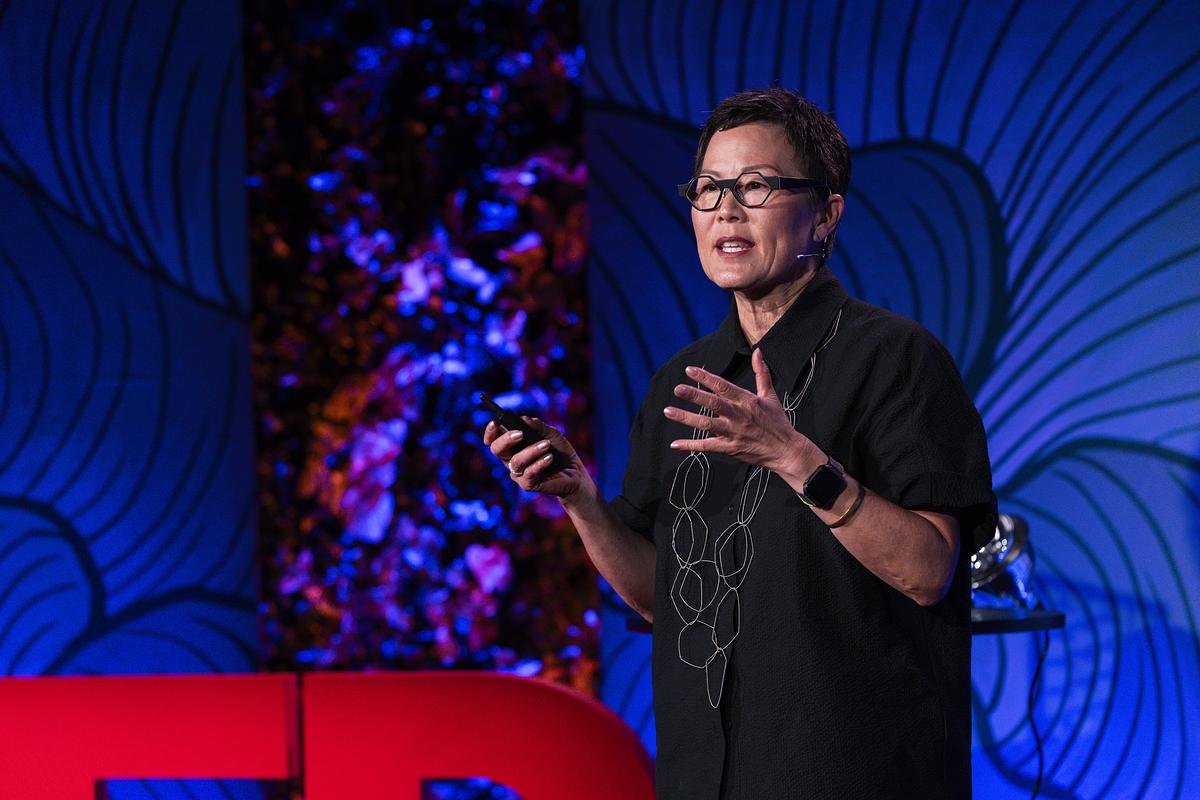
Doris Sung speaks at TED Salon: Big Bets at the TED World Theater in New York City on May 23, 2024. (Photo: Gilberto Tadday / TED)
From window shades built of hundreds of metallic, moving butterflies to an elegant tubing system that filters smog out of urban canyons, façade disruptor Doris Sung presents beautiful designs that can turn building facades into infrastructure for public wellness — and offers three ways to incentivize cities and property owners to make the shift.
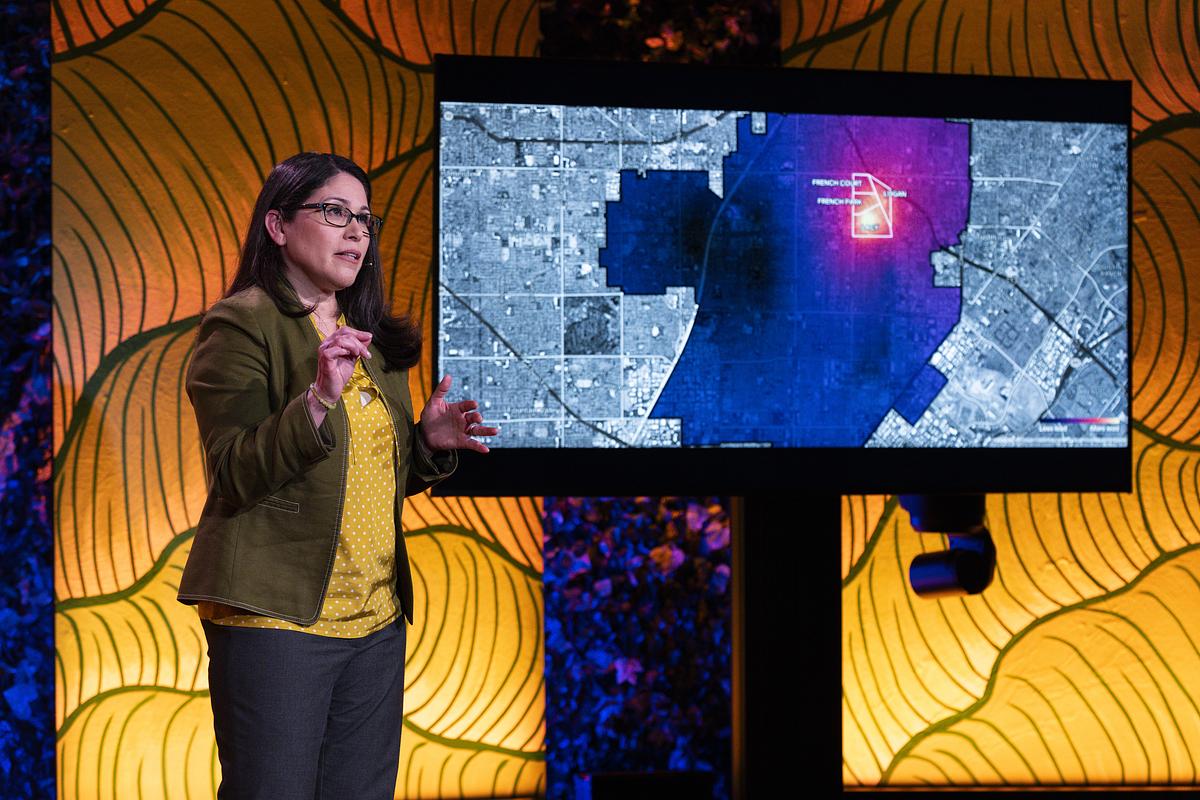
Yvette Cabrera speaks at TED Salon: Big Bets at the TED World Theater in New York City on May 23, 2024. (Photo: Gilberto Tadday / TED)
Lead wreaks havoc on children’s health and can remain in soil for centuries, says investigative journalist Yvette Cabrera. Exploring this silent killer’s pervasive presence in US urban centers — many of which, like Santa Ana, California, have large Latino and immigrant communities — she provides a roadmap to raise awareness and remedy this poison lurking in our midst.
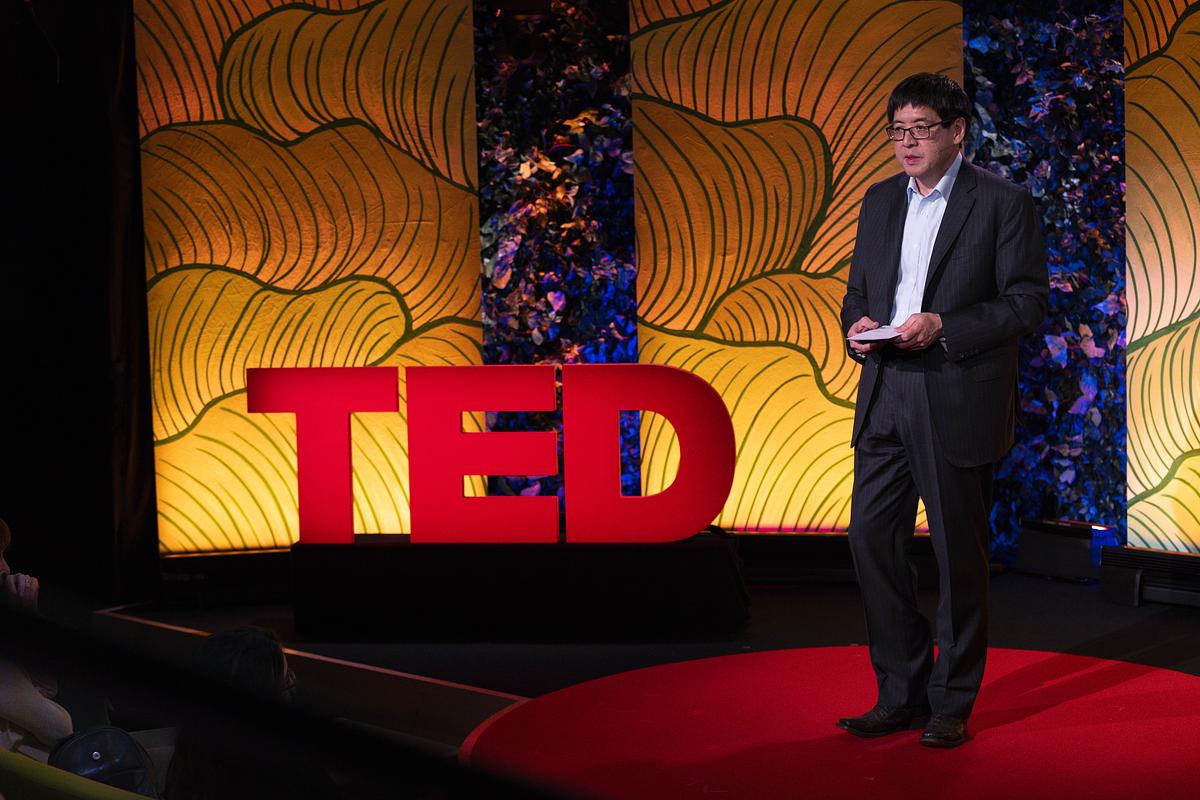
Sam Wang speaks at TED Salon: Big Bets at the TED World Theater in New York City on May 23, 2024. (Photo: Gilberto Tadday / TED)
Innovative neuroscientist Sam Wang delves into how computer simulations can offer a path to repair for American democracy, from detecting gerrymandered districts to predicting the impacts of alternative election methods, like ranked-choice voting. While simulations alone can’t solve all of our problems, it can help set the course to successful action, says Wang.
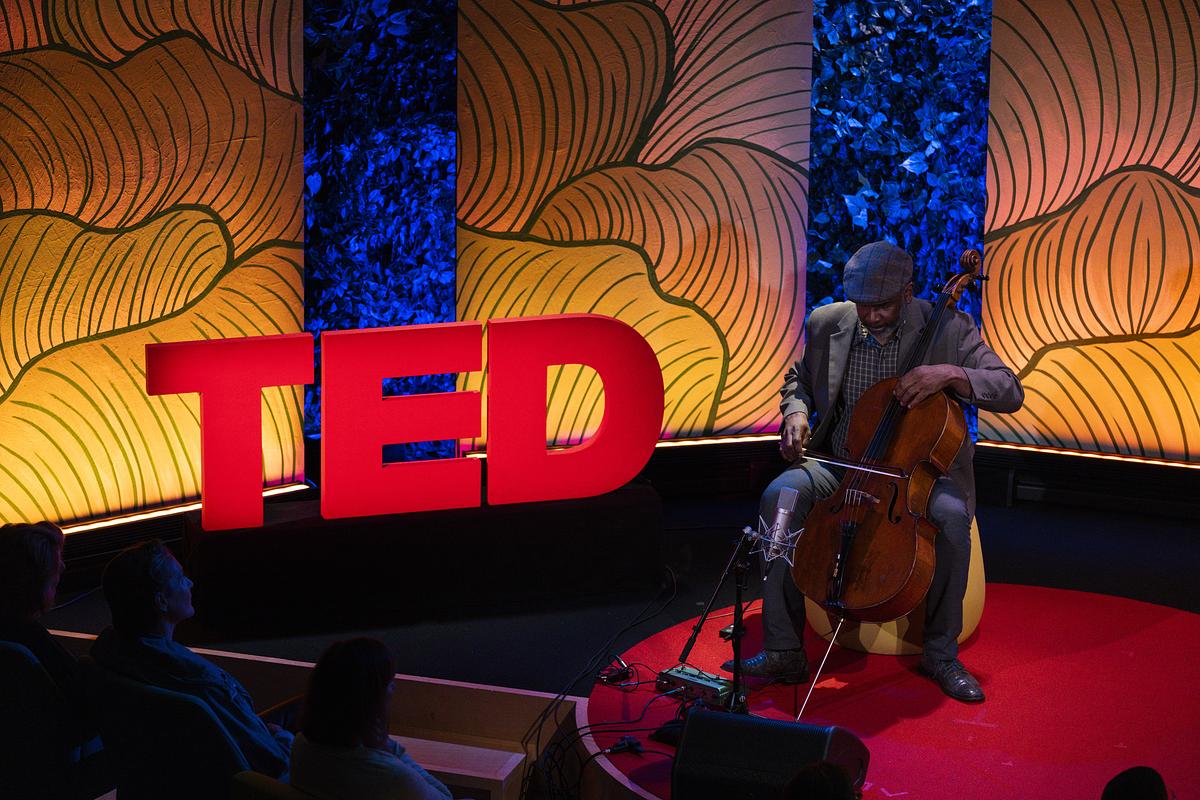
Paul Rucker performs at TED Salon: Big Bets at the TED World Theater in New York City on May 23, 2024. (Photo: Gilberto Tadday / TED)
“Leaving out information can be just as detrimental as a lie,” says multidisciplinary artist Paul Rucker. In a talk bookended by two cello performances, Rucker shares photographs of the history we often overlook — and introduces Cary Forward, his new museum aimed at spotlighting histories of exclusion and perseverance.
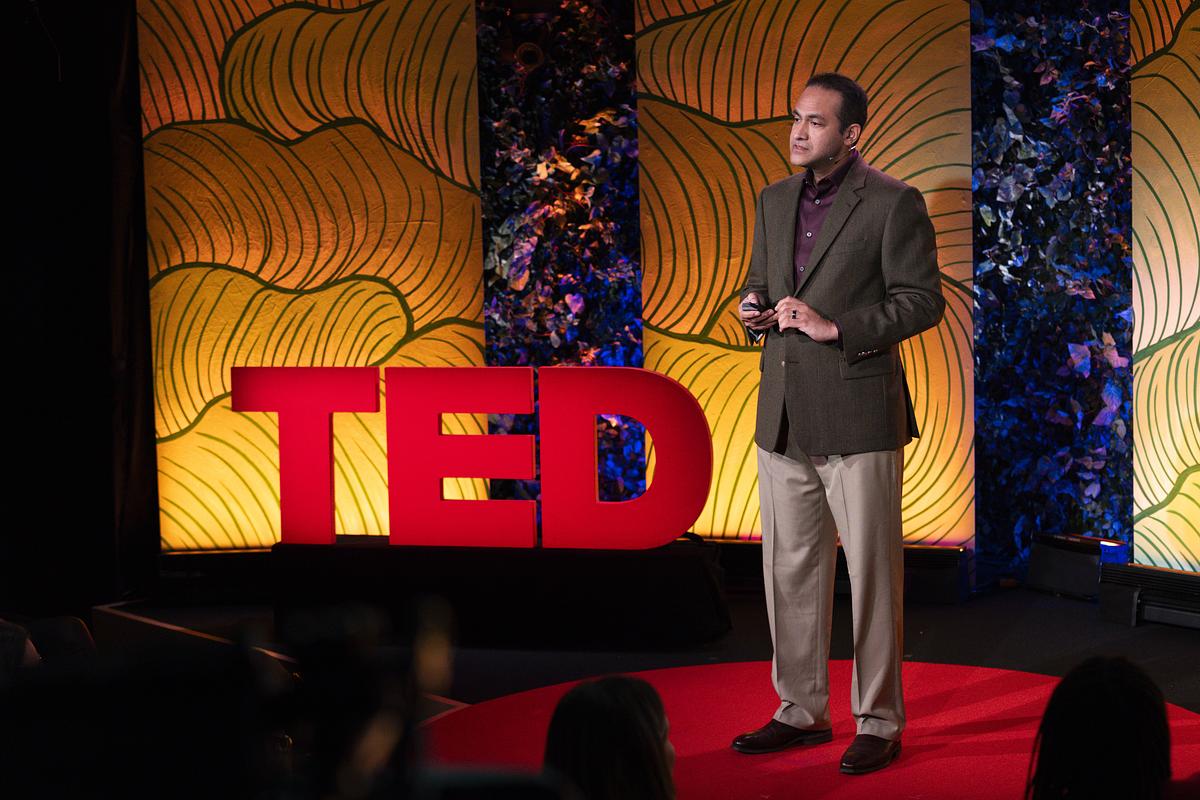
Saleem Ali speaks at TED Salon: Big Bets at the TED World Theater in New York City on May 23, 2024. (Photo: Gilberto Tadday / TED)
To transition to sustainable energy sources like solar, wind and hydropower, the world needs massive amounts of essential minerals. Environmental peacemaker Saleem Ali explores the environmental and social conflicts arising from mineral mining and extraction — particularly in politically sensitive areas — and proposes the creation of a “mineral trust” managed by international trustees to ensure equitable distribution.
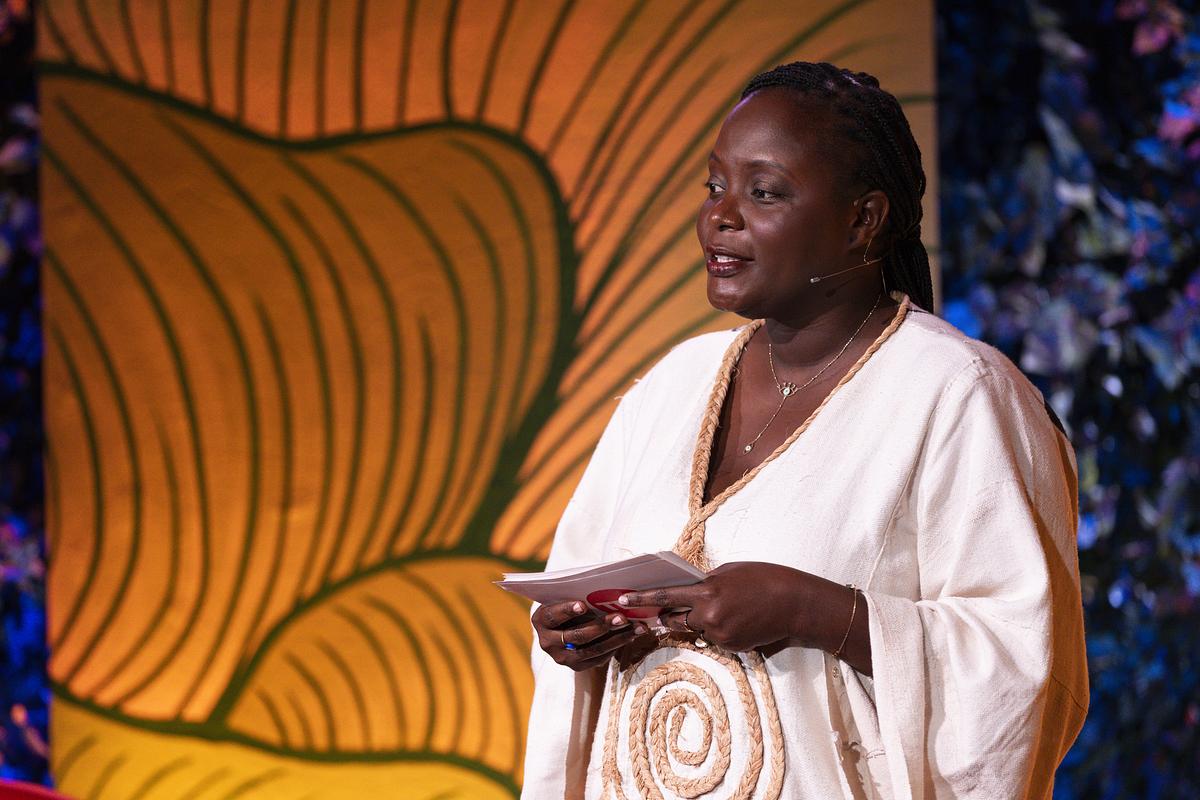
Fatmata Binta speaks at TED Salon: Big Bets at the TED World Theater in New York City on May 23, 2024. (Photo: Gilberto Tadday / TED)
Indigenous food systems advocate Fatmata Binta celebrates the wisdom and values embedded in rural African women’s culinary techniques through her nomadic restaurant, Dine On A Mat, which invites people to partake in and preserve the food cultures of West Africa. She shares recipes and stories of her own experience learning about these traditions, encouraging everyone to embrace the resilience and sustainability of Indigenous food.
